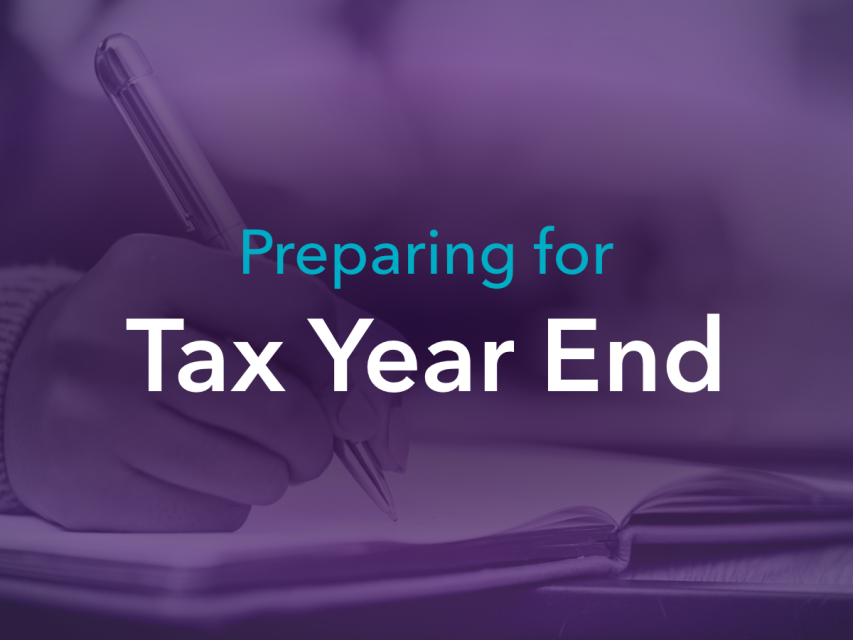Autumn Budget 2025: What can we expect?
Chancellor Rachel Reeves will deliver the Autumn Budget on 26th November against a backdrop of economic pressure.
There has already been plenty of speculation over what changes we may see, from ISA limits and pension tax-free cash to Inheritance Tax and Capital Gains Tax rules. You might be wondering what this all means and we’re here to reassure and help you – up to and beyond the Budget.
In this preview, we explore the economic context, highlight key policy areas we’re watching, and underline the importance of seeking financial advice.
Importantly, nothing we discuss below has been concretely announced by the Chancellor. Before making any decisions, please speak to a financial adviser.
What is the Autumn Budget?
The Autumn Budget is one of two major UK financial events each year, alongside the Spring Statement. The Chancellor typically reveals tax, borrowing and spending plans for the year ahead while trying to ensure state finances remain balanced.
- The Budget includes updates on the state of the UK economy, based on forecasts from the Office for Budget Responsibility (OBR).
- The Chancellor announces any changes to taxes (e.g. Income Tax, Corporation Tax, VAT).
- The Budget may also outline spending priorities for sectors like healthcare, education, defence, and welfare.
- It can also include new policies or reforms, such as investment in infrastructure or support for businesses.
The UK’s current fiscal challenge
October’s Office for National Statistics (ONS) release estimates that borrowing in the first six months of 2025-26 totalled £99.8 billion. This is £11.5 billion above the same period last year, adding further pressure to public finances.
On an economic front, UK GDP for July to September 2025 grew by +0.1%, compared to a +0.3% rise in the previous quarter.
At 3.8%, CPI inflation remains almost double the Bank of England’s 2% target, leaving the central bank balancing persistent price pressures against weak economic growth.
With Labour’s manifesto commitment ruling out increases to Income Tax, National Insurance (NI), and VAT – and spending cuts looking difficult given the backlash to the Winter Fuel Allowance and disability cuts – the Chancellor may end up exploring alternative revenue-raising measures.
Key areas that could be covered this Autumn
Pensions and tax-free cash
Currently, from age 55, you can usually take up to 25% of your pension money without needing to pay any tax. This is provided you take the money as one or more ‘Pension Commencement Lump Sums’ (tax-free cash payments) and, unless you have a certain type of protection (known as Fixed or Enhanced Protection), do not take more than £268,275 in total as tax-free cash.
This limit is called the lump sum allowance (LSA) and applies to the total of all pensions, not to each one individually.
Treasury Officials have confirmed that tax free cash entitlements from pensions will not be altered at the upcoming Budget. However, please do speak to a financial adviser first if you have any concerns.
Pensions and Inheritance Tax – what do we expect next?
Rules continue to evolve, and following the changes announced at last year’s budget, the way pensions are passed on is changing. From April 2027, unused pension funds and lump-sum death benefits payable from registered pension schemes will potentially be liable to Inheritance Tax, but full legislation hasn’t been finalised yet.
Remember, taking money out of your pension before you actually need it can sometimes do more harm than good to your long-term wealth. We may hear more in the upcoming Budget, but for now, if you have any questions, it’s best to seek financial advice.
ISA changes
While the Chancellor steered clear of mentioning ISAs in the Spring Statement, the accompanying document outlined plans for a consultation on the tax-efficient savings wrapper. In the document, the government said they would be looking at options for “reforms to Individual Savings Accounts that get the balance right between cash and equities to earn better returns for savers, boost the culture of retail investment, and support the growth mission.”
No changes have been announced yet and there is strong support from the Building Society sector to keep things as they are. ISAs offer tax-free growth and a range of access options. The ISA allowance for the 2025/26 tax year is £20,000 (this is lower for a Lifetime ISA at £4,000).
We are here to advise and suggest you speak to us if you have any questions around maximising your allowances or any concerns.
Capital Gains Tax
Given Labour’s manifesto commitment not to raise Income Tax, National Insurance or VAT, it is possible they may turn to other taxes if the Government needs to boost revenue.
Capital Gains Tax rates were raised at the last Budget, with the lower rate increasing from 10% to 18% and the higher rate from 20% to 24%.
The Chancellor may review these rates again or may consider applying specific rates to certain asset classes, for example second properties. The annual exemption allowance has already been reduced in recent years from £12,300 to £6,000 in 2023/24 and now stands at just £3,000.
Inheritance Tax on gifts
As mentioned, the government are looking to bring unused pension funds and death benefits payable from a pension into an individual’s estate for Inheritance Tax purposes from 6th April, 2027.
The Treasury could look at further ways to raise more money from Inheritance Tax amid growing pressure on the country’s finances.
This is reported to include a lifetime cap on the value of gifts that can be made before death. Currently, no tax is due on any gifts you give if you live for 7 years after giving them (known as potentially exempt transfers) – unless that gift is given to a certain type of trust. A cap would place a limit on how much can be passed on during your lifetime that could be potentially exempt.
New home sale tax to replace stamp duty?
The Chancellor is said to be considering a new property tax on home sales, which would replace stamp duty on owner-occupied homes.
This would involve a new national ‘proportional’ property tax being levied on house values above £500,000.
For those who would have to pay the new tax, they could face significantly higher bills than they currently pay on stamp duty. The amount paid would be determined by the value of the property, with the rate set by central government.
Stamp duty is calculated in bands. Currently, first-time buyers who purchase a property for £500,000 or less pay no stamp duty up to £300,000, and then 5% on the portion between £300,001 and £500,000. Non-first-time buyers pay no stamp duty on the first £125,000, 2% on the portion from £125,001 to £250,000, 5% from £250,001 to £925,000, 10% from £925,001 to £1.5 million and 12% on the amount above £1.5 million. If you already own a residential property and purchase an additional one, higher SDLT rates apply.
It is important to note that the Chancellor will be weighing up these types of options with keeping the property market buoyant, as it is a key economic driver.
National Insurance for landlords
There have been reports that the Chancellor is considering applying National Insurance to rental income for landlords – a move that is claimed to have the potential to raise around £2 billion a year. Applying an 8% National Insurance levy to that income could be deployed by the Government as a potential revenue-raising measure.
Why taking advice matters more than ever
Our aim is to deliver good client outcomes through clear, practical advice. The Budget often prompts a wave of “what if” questions in the build-up, but the crucial thing to remember is that, for the moment, this is all pure speculation. By staying informed and working with a qualified adviser, you can ensure your financial strategy remains aligned with your objectives, no matter what changes are announced.
Staying informed: how we are here to support you
We’ll provide a full breakdown on the day and analysis after the Budget has been delivered in the form of a reaction video and blog to help you understand any changes that affect you.
In the meantime, if you have questions or concerns about how the Budget might impact your finances, please don’t hesitate to get in touch. We’re here to provide expertly tailored financial advice and as mentioned, recommend you seek our guidance before making any decisions.
With investing, your capital is at risk. Investments can fluctuate in value and you may get back less than you invest. This material is not a personal recommendation or financial advice and the investments referred to may not be suitable for all investors.
Tax is subject to an individual’s personal circumstances and tax rules can change at any time.
Pension eligibility and tax rules apply. ISA eligibility and tax rules apply. You should ensure your contribution does not result in your total ISA contribution within the tax year exceeding £20,000 and your total pension contribution within the tax year exceeding £60,000.
The Financial Conduct Authority do not regulate Will Writing, Tax Advice, or Estate Planning.
True Potential LLP is registered in England and Wales as a Limited Liability Partnership No. OC380771.






